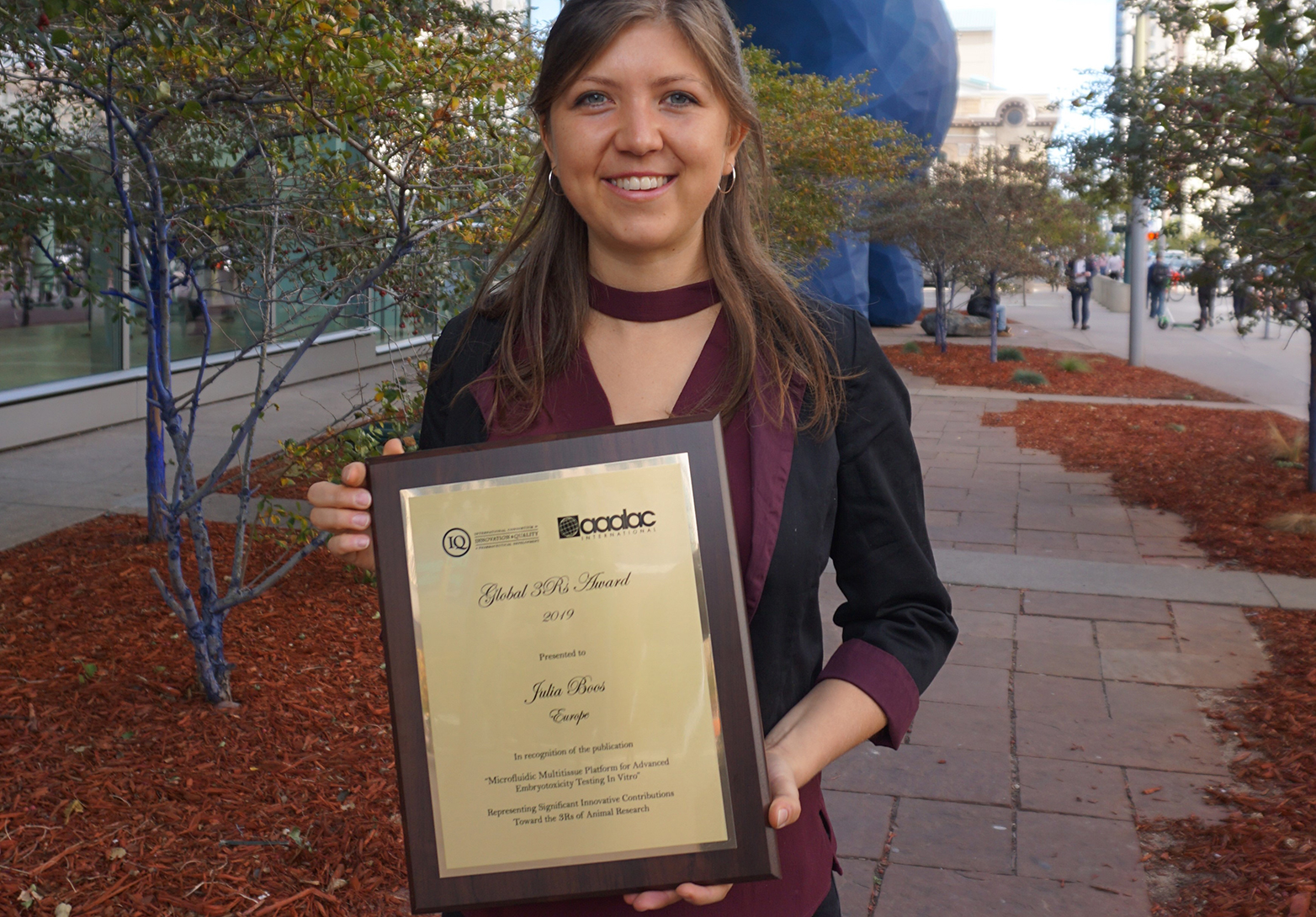Animal welfare award for Julia Boos
The doctoral student at the Department of Biosystems developed an in vitro process that tests new medications for adverse effects on embryos. Now she has been honoured with a top international prize for alternatives to animal testing.

Julia Boos, a doctoral student in the Department of Biosystems Science and Engineering at ETH Zurich in Basel, received the Global 3Rs Award – Europe today in Denver, US. A member of ETH Professor Andreas Hierlemann’s group, Boos was recognised for her development of an in vitro system for testing the embryotoxicity of pharmaceuticals. Her test uses three-dimensional clumps of cells formed from a combination of human liver tissue and embryonic stem cells collected from mice. It is this combination of liver and embryonic microtissues that allows the test to also detect substances that are not toxic in their original form, but are transformed into adverse substances by the metabolism of the human liver. Such tests are otherwise possible only in animals.
The external pageGlobal 3Rs Awardscall_made are conferred jointly by the Association for Assessment and Accreditation of Laboratory Animal Care International (external pageAAALAC Internationalcall_made) and the International Consortium for Innovation and Quality (external pageIQcall_made) in Pharmaceutical Development. They recognise efforts on behalf of the humane and ethical treatment of laboratory animals, often referred to as the 3Rs: replacement (opting for experiments that avoid or replace animal testing), reduction (decreasing the number of lab animals used in testing) and refinement (minimising the amount of distress lab animals are subjected to in testing and improving test planning).
Other members of Hierlemann’s group have been recognised in the past for research efforts that contribute to the 3Rs. Olivier Frey won the Global 3Rs Award – Europe in 2016 for a similar approach. And two years before that, the group received an award from the UK’s National Centre for the Replacement, Refinement and Reduction of Animals in Research.
See the ETH News article for more information on the award-winning research.
More information about the 3Rs on the ETH website.
